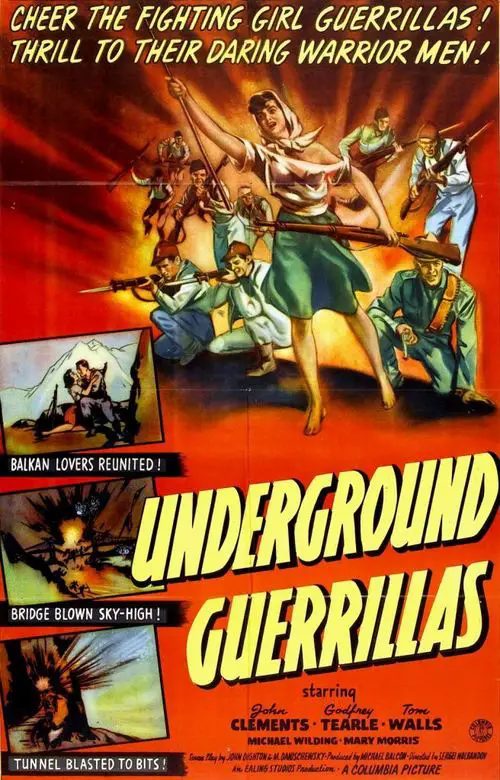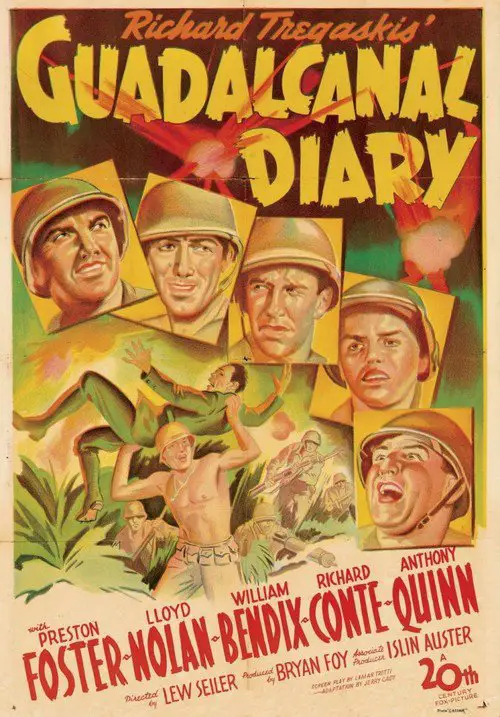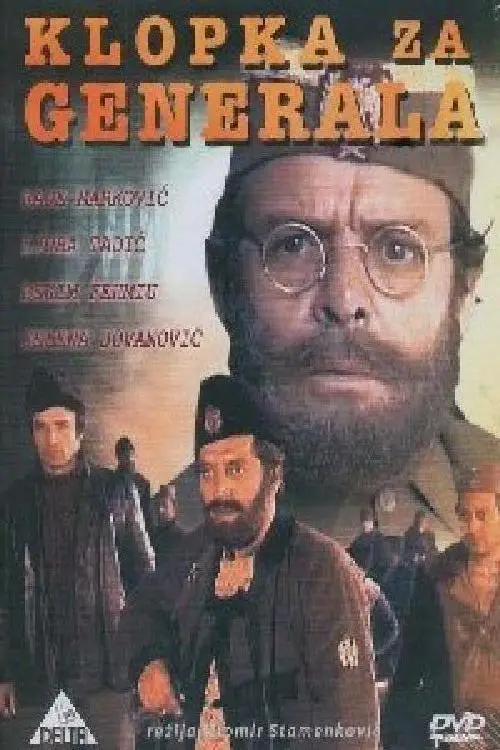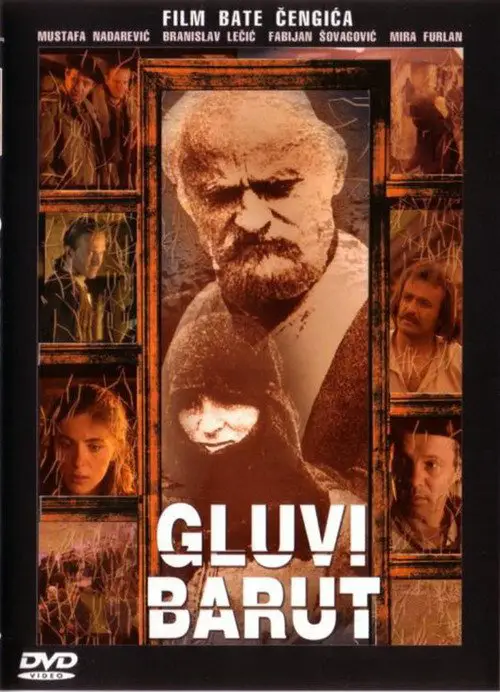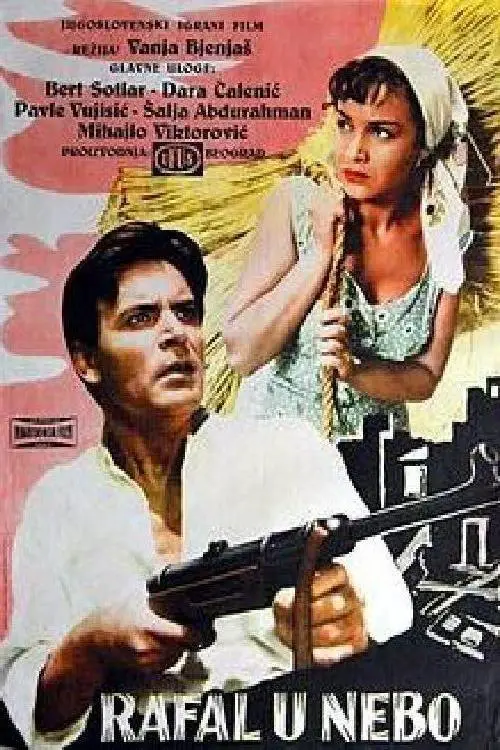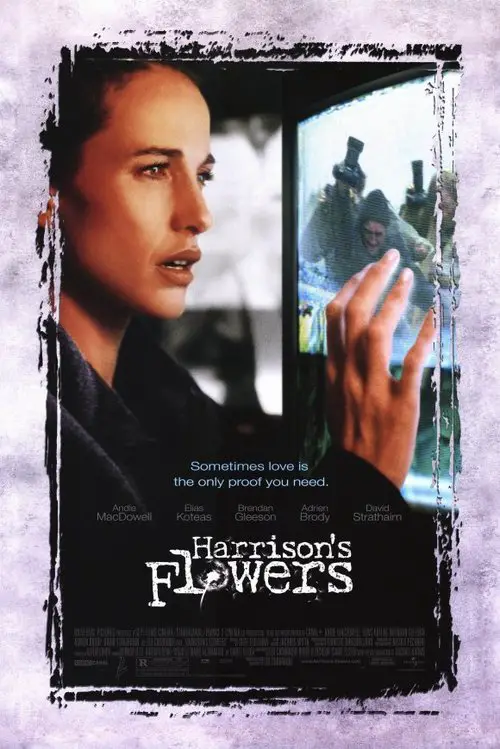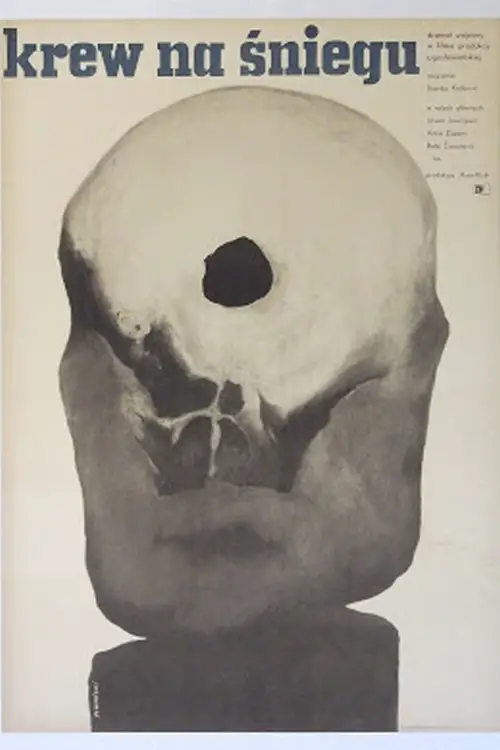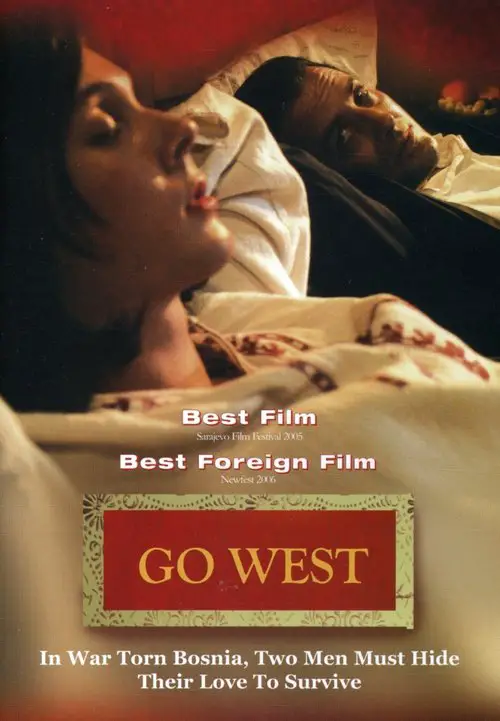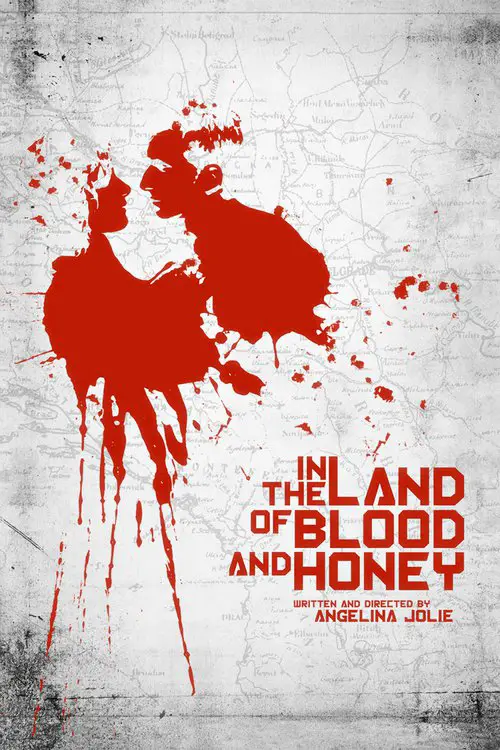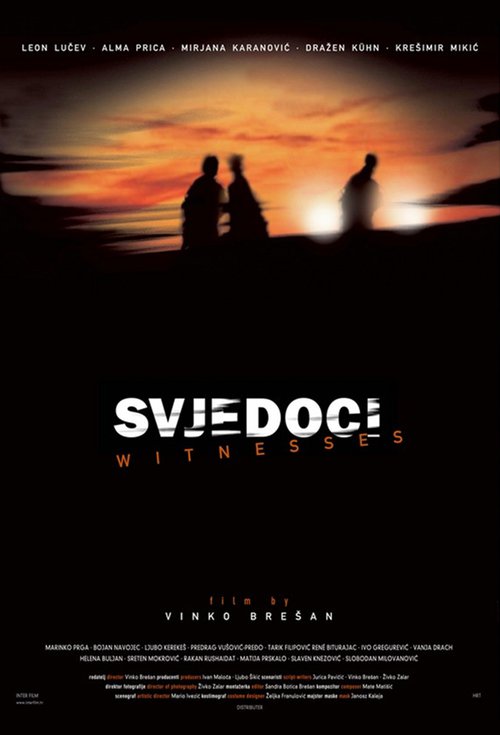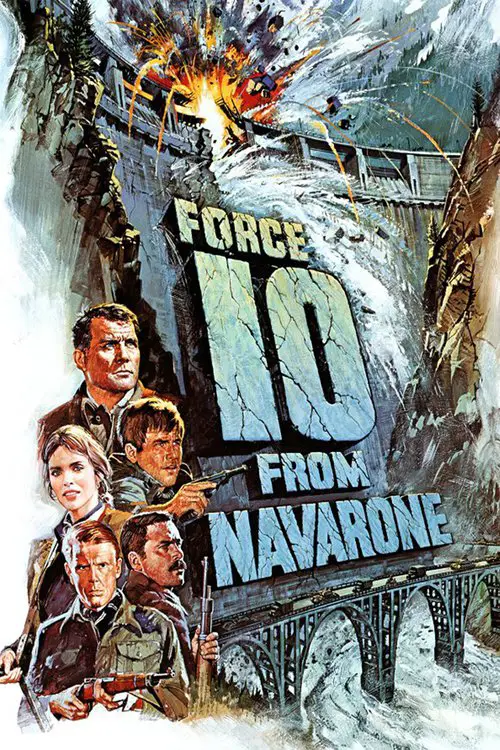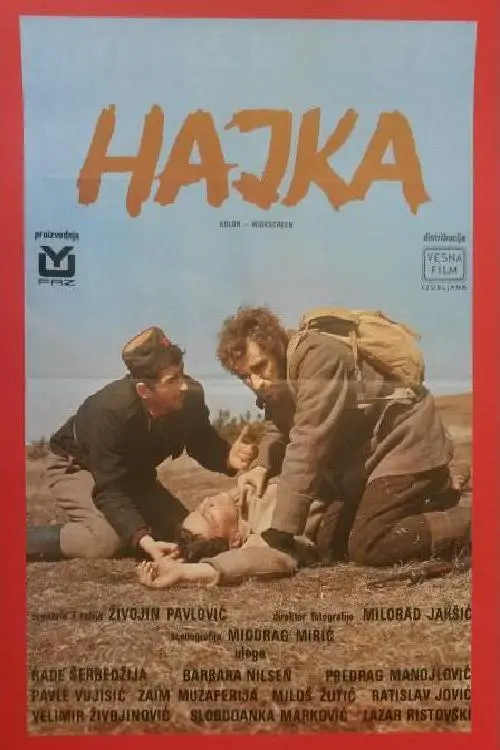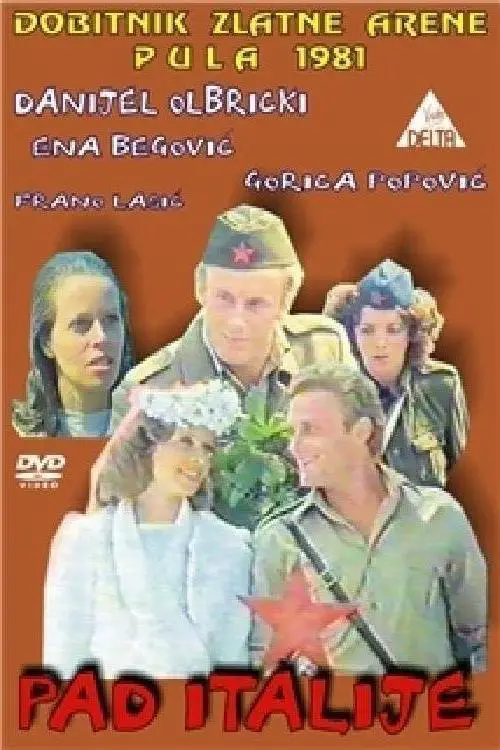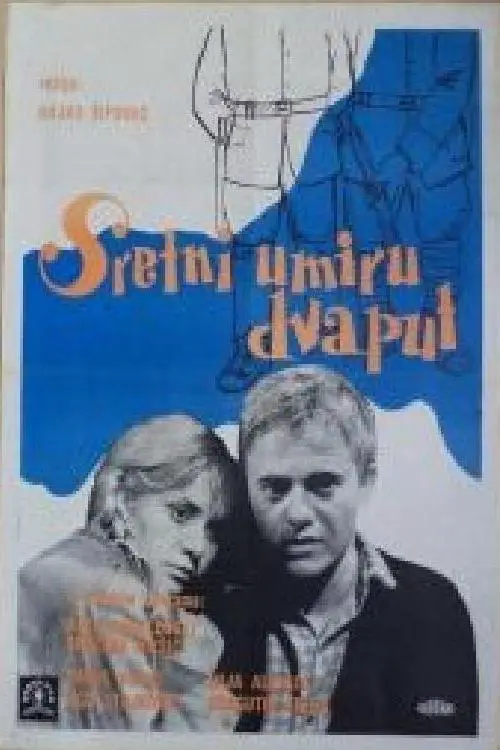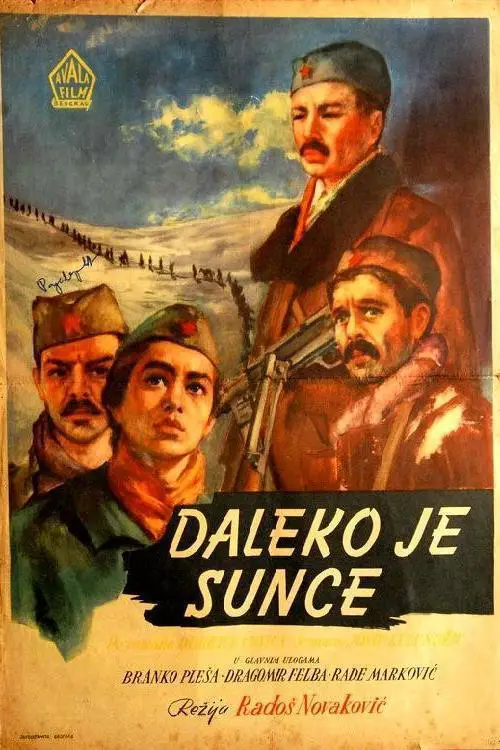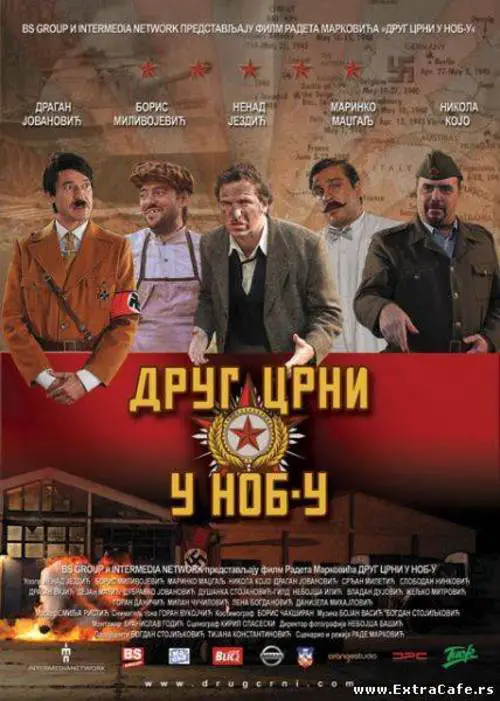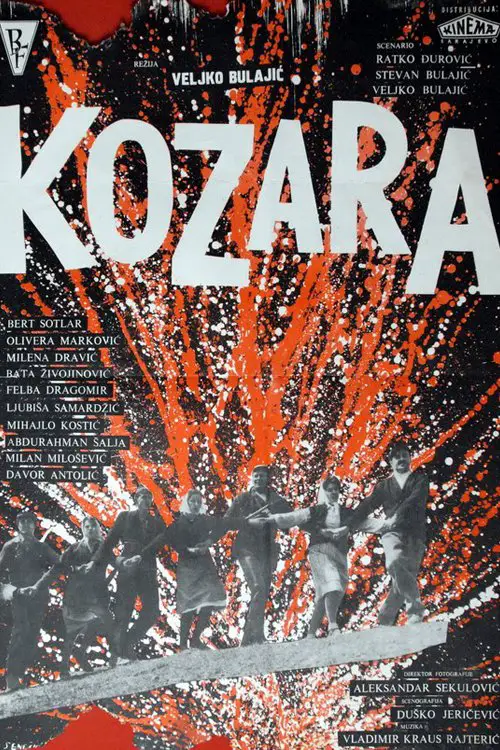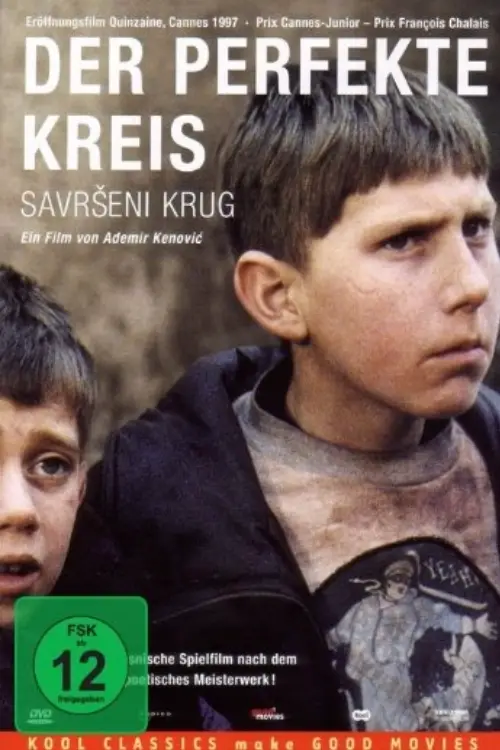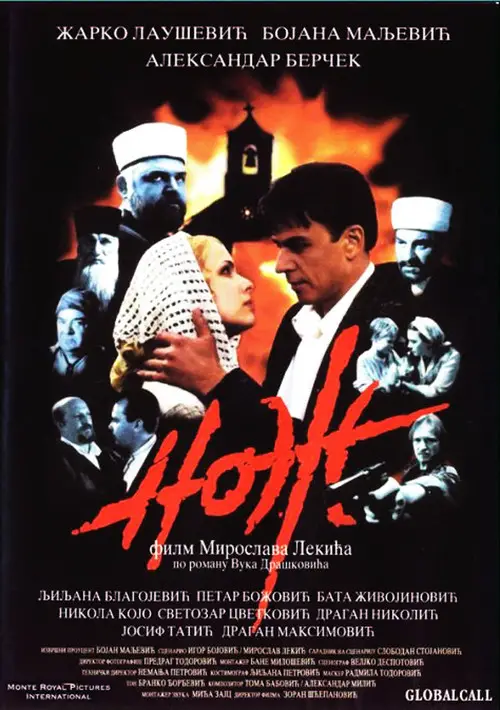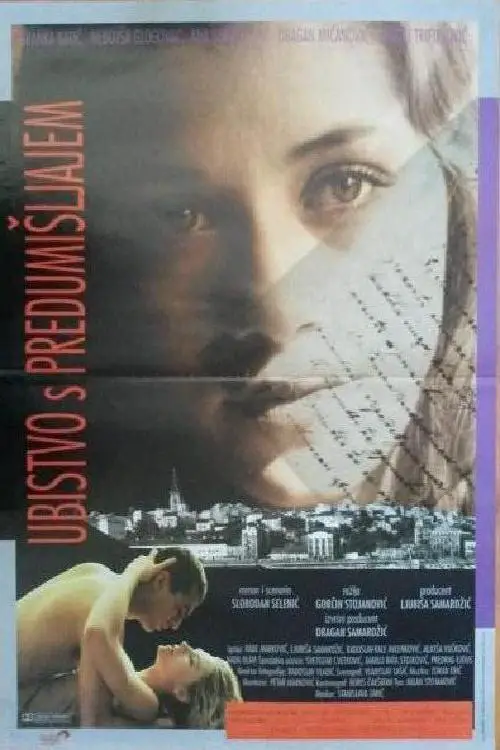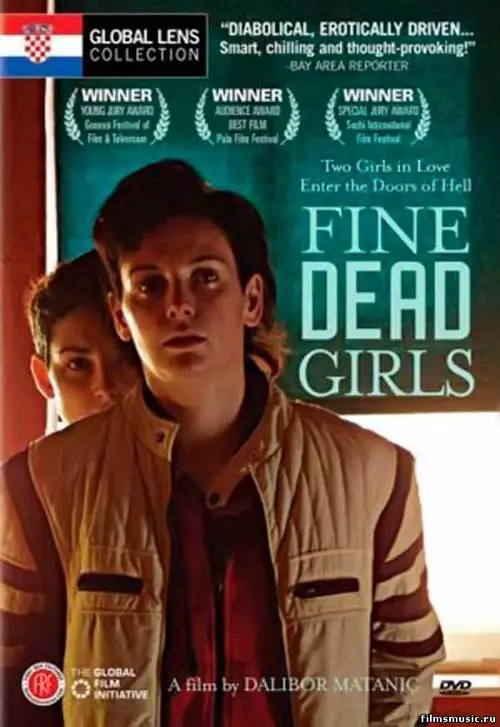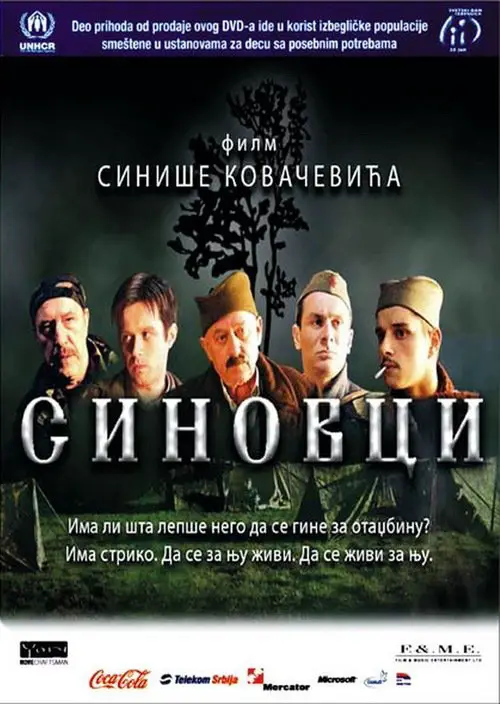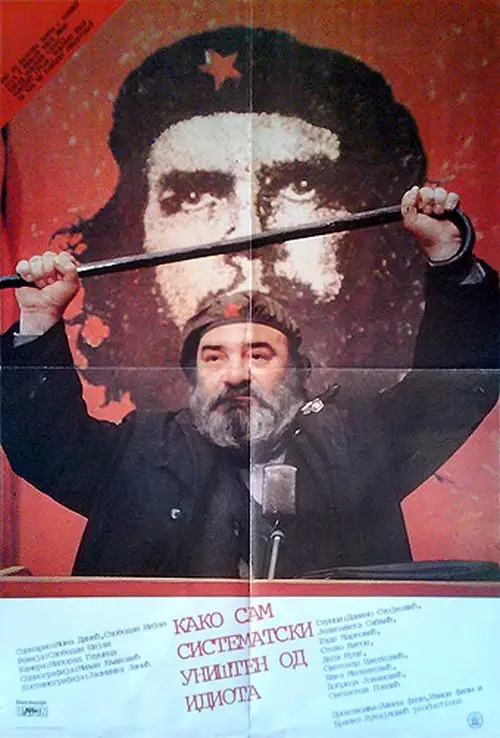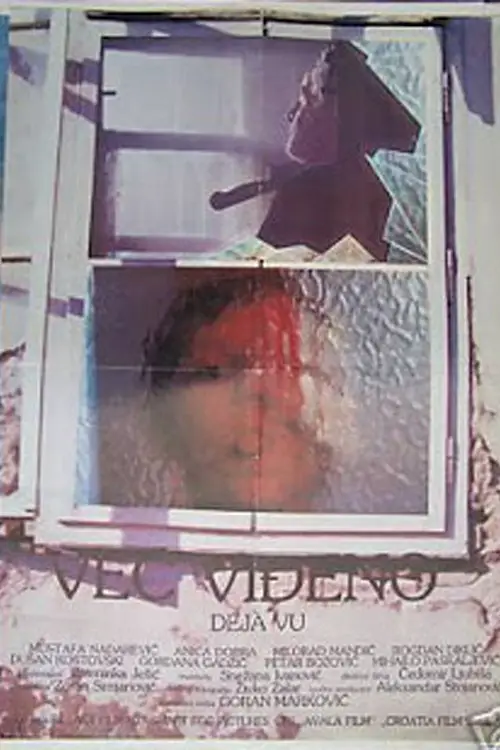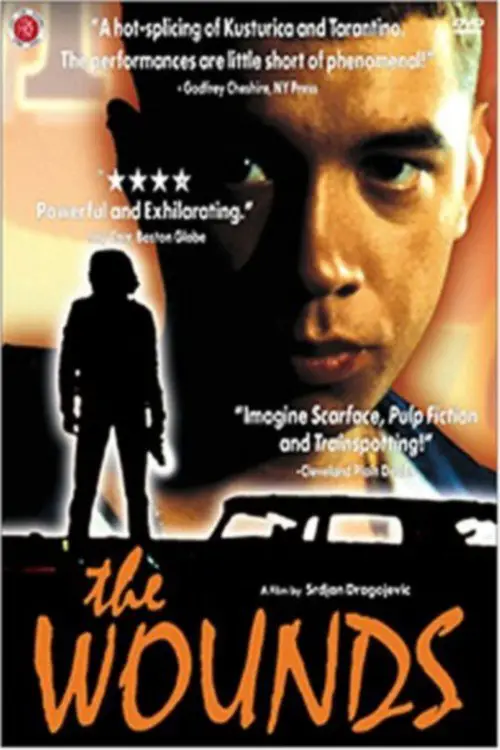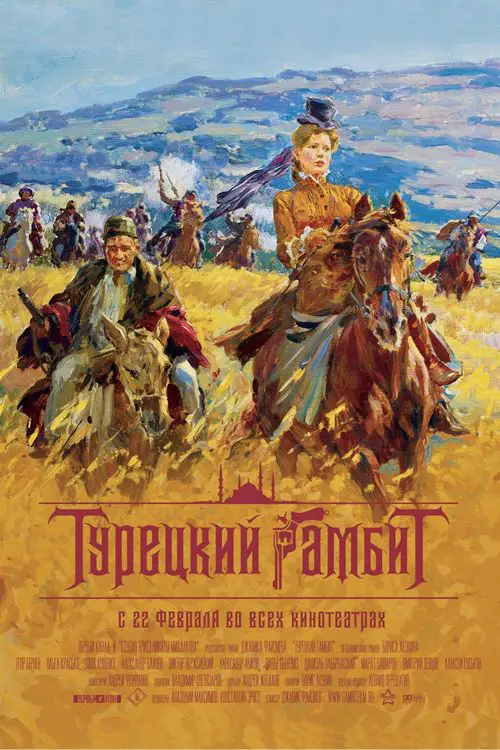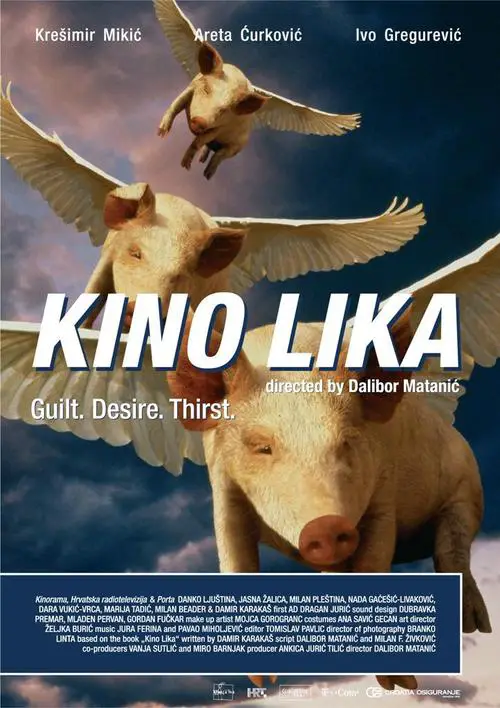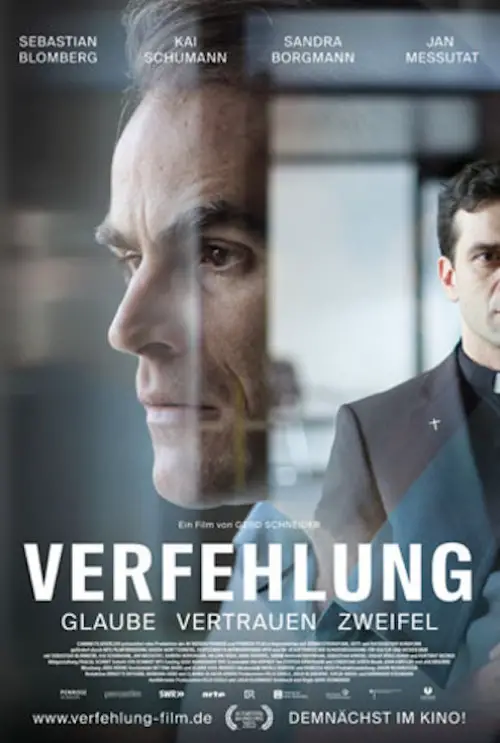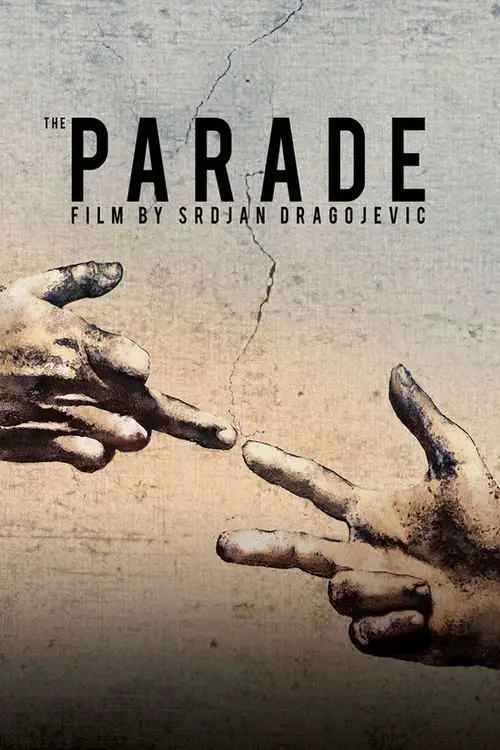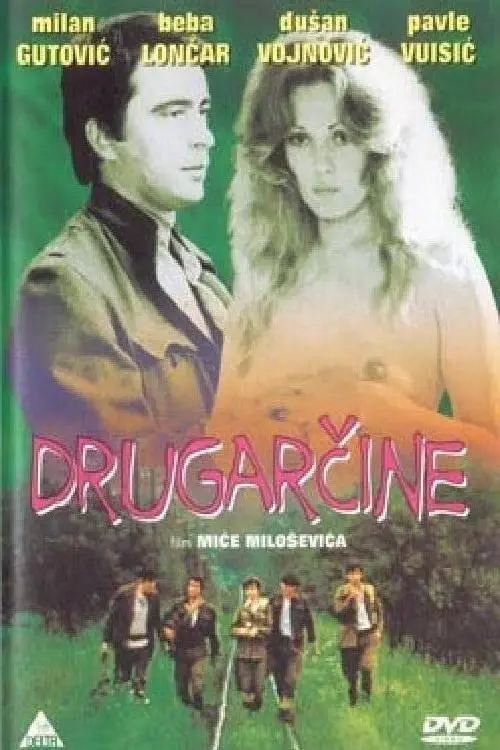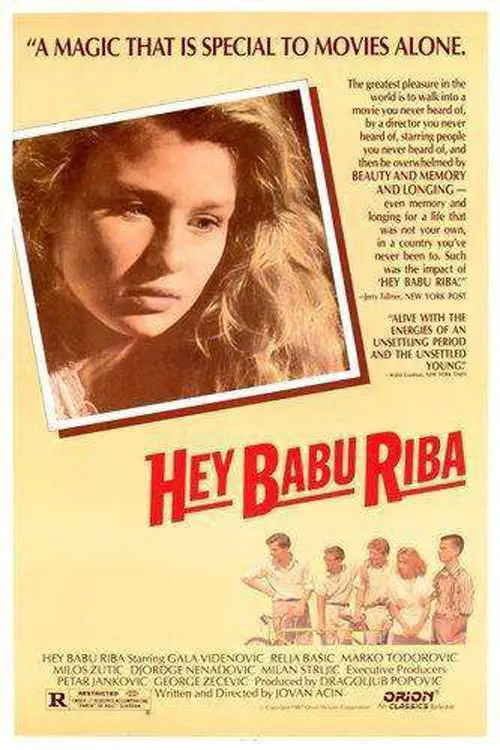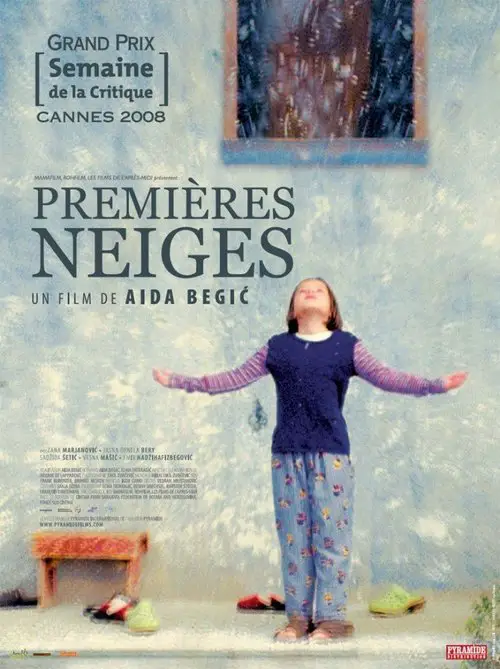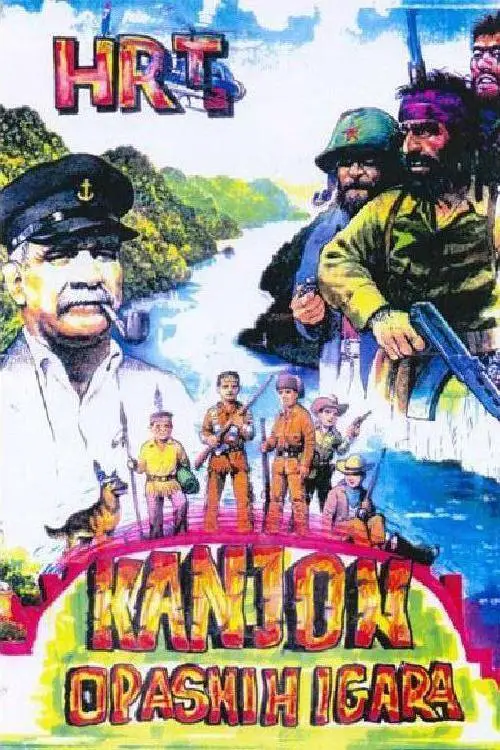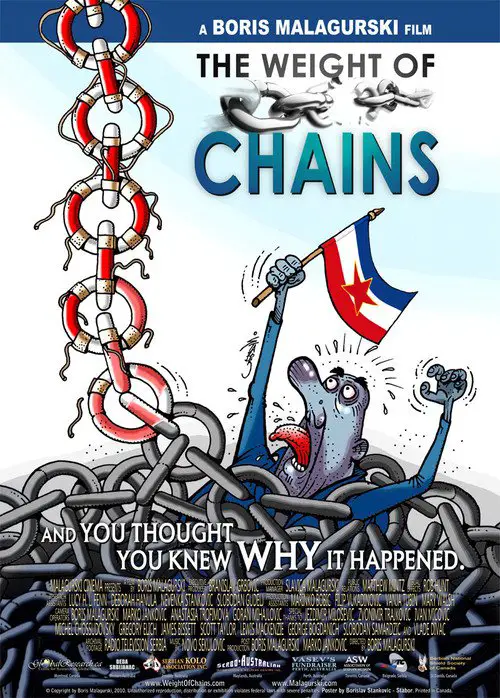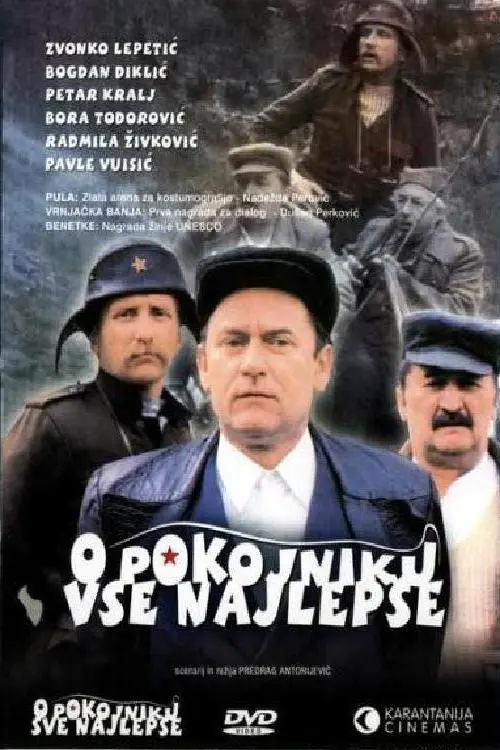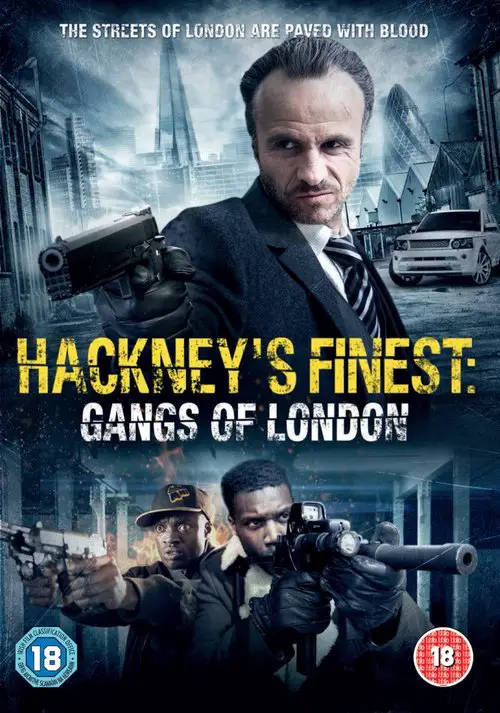The Fighting Guerrillas (1943)
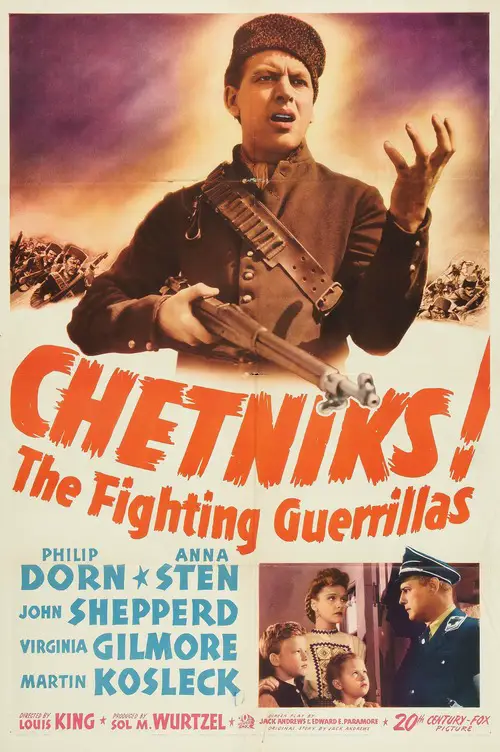
Similar movies
Silent Gunpowder (Serbo-Croatian: Gluvi barut) is a Yugoslavian war film Based on a novel by Branko ÄopiÄ and set during World War II, the film tells the story of a Serbian village in the mountains of Bosnia and its villagers who found themselves divided along two opposing ideological lines, represented by the Chetniks and the Partisans. These two opposing sides are personified in the Partisan commander Å panac and a former Royal Army officer RadekiÄ. Å panac sees RadekiÄ as the cause of villagers' resistance to the new, Communist, ideology and so the main plot axis is the conflict between them. At the 1990 Pula Film Festival, the film won the Big Golden Arena for Best Film, as well as the awards for Best Actor in a Leading Role (Branislav LeÄiÄ), Best Film Score (Goran BregoviÄ). The film was also shown at the 1991 Moscow International Film Festival, where both Branislav LeÄiÄ and Mustafa NadareviÄ won the Silver St. George Award for their performances.
Upon returning home at war's end, a young lieutenant discovers that his family has been murdered by the Nazis. It's all the handiwork of a treasonous "Chetnik," who during the war worked against the partisans on behalf of the Germans. In bitter retaliation, the lieutenant sets about to decimate the Chetnik's family. He stops short, however, when he realizes that the sins of the fathers are not always passed down to the innocent children.
Pretty Village, Pretty Flame (Serbian: Lepa sela lepo gore) is a 1996 Serbian film directed by Srdan Dragojevic that gave uniquely bleak yet darkly humorous account of the Bosnian War. It is considered a modern classic of Serbian cinema.[citation needed] Almost 800,000 people went to see the movie in cinemas across Serbia. This equates to approximately 8% of the total country's population at the time of the film's release. The plot, inspired by real life events that took place in the opening stages of the Bosnian War, tells a story about small group of Serbian soldiers trapped in a tunnel by a Muslim force. The film's screenplay is based on an article written by Vanja Bulic for Duga magazine about the actual event. Through flashbacks that describe the pre-war lives of each trapped soldier, the film describes life in former Yugoslavia and tries to give a view as to why former neighbours and friends turned on each other.
Harrison Lloyd is a Pulitzer-winning photojournalist. His wife and family are making it hard for him to keep his mind on his work when he's in a war zone, and he wants to change jobs to something less stressful. But he's got one last assignment, in war-torn Yugoslavia, in 1991, at the height of the fighting. Word comes back that he apparently died in a building collapse, but his wife Sarah (also a journalist for Newsweek) refuses to believe that he's dead and goes looking for him. She's helped immensely by the photo-journalists Eric Kyle and Marc Stevenson that she runs into over there; together, they're determined to make it through the chaotic landscape to Vukovar, which is not only the nexus of the war but where she believes Harrison is located. Meanwhile, Harrison's son Cesar is looking after his father's prized greenhouse, keeping hope, and flowers, alive.
In a Serbian village on Christmas Day in 1943, the Chetniks accept two downed American pilots and give them hospitality. However, finding out that the Germans are looking for pilots, the Chetniks change attitude towards them, disarming and shutting them off, but the pilots were able to escape. Palming off the corpses of two other killed prisoners to the Germans, who have since captured the real pilots, the Chetniks make local people enraged, despite their captain's attempts to cover up this wrongdoing, done on a public holiday.
Follow a group of international journalists into the heart of the once cosmopolitan city of Sarajevoânow a danger zone of sniper and mortar attacks where residents still live. While reporting on an American aid worker whoâs trying to get children out of the country, a British correspondent decides to take an orphaned girl home to London.
The horrors of war are examined from the view points of lifelong friends (Linus Roache, Vincent Perez), who end up on opposing sides in the civil war in Sarajevo. One is an expert marksman, who trains the snipers used to terrify the city and the other becomes a freedom fighter, who rejects his friend's offer to gain an escape from the city. As might be expected, the two eventually have to face-off against one another.
In the nineties the Yugoslavia Federation falls apart in bloody wars. Perpetual student Milan, a Serb from a patriarchal community and Kenan, a Muslim cellist, are a homosexual couple living in Sarajevo. Their lives, intimate and public, are shaken up by the aggression in Bosnia and Herzegovina, whose devastating consequences unfold in inter-ethnic hatred. Trapped in Sarajevo during the siege of the Serb forces, the lovers manage to flee to Milan's home village and there they take shelter, waiting for Milan's father, Ljubo, to find a way to the Netherlands. Witnessing the brutality of Serb forces and their hatred towards Muslims, Milan desperately improvises: he disguises Kenan as a woman and begins to present him as his wife, Milena, a secret discovered by Milan's best friend, Lunja. Milan is drafted into the army and the situation becomes almost unbearable for Kenan. His one companion, is Ranka, a waitress in a local café, a woman whose dark secrets terrify most of the villagers ...
Set amid the atrocities of war in the Balkans, Witnesses is retold, Rashomon-style, from various characters' viewpoints, adding new information about the complexity of war and humanity. Beginning inside a rustic house with a woman in black (Mirjana Karanovic) standing beside her husband's coffin, Witnesses interweaves the stories of a small town confronting ethnic hatred and deep moral ambiguities.
The setting is the islands off the Dalmatian coast of Yugoslavia, during WW II. The islands are controlled by occupying Italian forces, and a resistence movement of Communists is dedicated to sabotaging and ending the occupation. When a wealthy young man joins the resistence, he falls in love with a woman who turns out to be a spy for the Italians. As a result of his liaison and her activity, they are both executed by a Communist comrade - a previous friend. The comrade is dedicated to the hard-line policies of the resistence, until he himself falls in love with the daughter of a bourgeois landowner on the island - a landowner who has collaborated with the Italians. Neither the Italian occupying army (one officer is shown in an attempted rape scene) nor the resistence fighters are stereotyped forces for good or evil, but all are equally subject to the dehumanizing effects of war.
Somewhere in Bosnia in 1943 between the fourth and fifth enemy offensives column partisans withdrew across a river to free territory. At the moment of crossing the river, a group of Chetniks suddenly attack a column of partisans. In this violent attacks, a lot of partisan dies. Manage to cross the river and so be saved from bullets, only few partisans as a young partisan Radojica young nurse partisan Milica. Radojica and Milica cut off from his brigade, moving in their difficult and arduous hike over the mountains in the hope that they will meet again with the brigade. In this wandering, they will encounter a series of tragic-comic situations. Since the departure of Radojice in prison and subsequent flight to several grisly encounter with the Chetniks, to find the brigade and brave and daring capture of the entire Chetnik detachments and Chetnik duke who was responsible for the attack on the partisans.
Down under the constant attacks of the German and Bulgarian forces, headquarters one of the partisan detachment in the midst of a severe winter and snow and difficult terrain, with many wounded, he decided to leave the mountain Jastrebac. Gvozden, a peasant from that area, brave warrior, opposes such a decision, was gets ready to leave the unit before detachment. In the interests of discipline, however, Gvozden was convicted and executed on the spot, although it regrets the whole squad.
Set in April of the turmoil that is the year 1941. The Germans have occupied Yugoslavia and its capital Belgrade. Adolf Hitler is again drawing the new borders of Europe. Remains of Belgrade are filled with chaos, despair, black markets, famine and poverty. The Serbian people are broken up into national traitors, servants of the German occupants, chetniks, communists etc. That is the setting where our well-known characters find themselves. Our hero is Zivota Grujic â Comrade Black, the descendant of the notorious Black Gruya. Just as cunning and witty as his predecessor, Comrade Black endeavors to make use of every situation he finds himself in. Ideal opportunities open up when against his own will, he is forced to cooperate with all the present influential heads of Europe.
In June of 1942 Germans and their collaborators decide to get rid of partisans and their stronghold in the woods of Mount Kozara in Northern Bosnia. They encircle the mountain and begin the mop up operation. Out gunned and outnumbered the partisans must not only take care of themselves but try to protect thousands of refugees too.
An alcoholic Bosnian poet sends his wife and daughter away from Sarajevo so they can avoid the troubles there. However, he is soon descended upon by a pair of orphaned brothers. The brothers have escaped a massacre in their own village and have come to the Bosnian capital in search of a long lost Aunt. The poet befriends the boys and together they try to survive the horror of the siege of Sarajevo.
In attempt to find out who he is and where his roots lie, Alija Osmanovic discovers something far deeper and more important. He slowly discovers an evil that follows him as his destiny regardless of what his ancestors were called.Trying to find the reasons for this evil, he finds himself in a vicious circle. Running away from an irrational fear within him, he finds the road to his faith...
Men, women, and war. Jelena Panic is a young woman in Belgrade in the early 1990s, during Serbia's war with Croatia; she's making a book of her grandmother's diaries from the end of World War II. She takes up with Bogdan, a young soldier recovering from war wounds. He helps her with her grandmother's story, a tragic triangle involving her effete and well-educated husband and an uneducated major, a Chekist who has, perhaps, the power to save a political prisoner who is the grandmother's friend. As Jelena wonders which man was her grandfather (the Chekist or the husband), Bogdan recovers from his wounds and must decide whether to return to the front. Jelena pleads; duty calls.
Iva and Maria, a young lesbian pair, rent a favorable, nice dwelling in a less good area of Zagreb, Croatia. But unfortunately, included in the rent are the neighbors, the neighbors from hell. The curious landlady, foreigners flogging nationalists, an old man, who live with his dead wife and a man, who beat his wife regularly, are just one part of this neighbourhood. When one of the neighbors falls in love with Iva, the situation escalates - with the result of three dead people at the end.
Mihajlo, an introvert piano teacher starts romance with a pretty careerist who teaches modeling at the university in Belgrade where they both work. His feelings are awakened after a long period, but this relationship makes him see the flashbacks, as well as yet unseen images that remind him of his troubled childhood - as if he experienced this already. When their university wins a contest to hold public TV performance, Mihailo fails to play the piano on the decisive night and she dumps him. The boiling point is about to come.
The film is based on the second book from the Adventures of Erast Petrovich Fandorin series of novels written by the Russian author Boris Akunin. The film takes place in 1877 during the Russian-Turkish war. Erast Fandorin has just escaped from Turkish prison and is trying to get on the Russian side as soon as possible to give important information about the upcoming attack of the enemy. On his way he meets Varvara Suvorova, a young lady who is going to see her fiancée - a soldier of the Russian army. Erast also knows that there is a spy somewhere in the Russian army, everyone is under suspicion.
A godforsaken mountain village is the only home that a young football player, a miser peasant and a fat girl have. This isolated part of the country finds itself in the middle of the referendum for or against the EU. Our characters couldn't care less - they are absorbed in their problems. The young football player who accidentally killed his mother doesn't want to join a rich foreign football team and is willing to risk his father's love because of it. The lonely fat girl is so desperate for a friend and for a lover that she will end up seeking both in the pig-sty. The miser peasant will find out that the real misery is in loneliness.
Jakob, Dominik and Oliver are best friends, they play soccer and work as priests. They are united in their belief that the catholic church can make the world a better place. But when Dominik is confronted with allegations that he abused a boy, Jakob's world collapses. Torn between his beliefs and the friendship to Dominik, he's committed to finding the truth.
The Parade, in a tragicomic way, tells the story about ongoing battle between two worlds in contemporary post-war Serbian society - the traditional, oppressive, homophobic majority and a liberal, modern and open-minded minority... The film, which deals with gay rights issues in Serbia, features footage of the 2010 Belgrade gay pride parade. The film introduces a group of gay activists, trying to organize a pride parade in Belgrade
The war is over, and a group of young Partisans returns to their town to continue their interrupted education. They are doing everything in their way, because they are young enough to go to school and to horse around, but mature enough to react to lies and injustice. Loud, ready to fight, they are a problem in school, in youth organization, in town's command. And when they get used to normal life, one of them gets killed by Chetnik renegades' ambush. The comrades wear their uniforms again, take their weapons and succeed in revenging their comrade. When they return to school again, they are determined to pass the maturity test as well...
In America it frequently shows under the title Hey Babu Riba. In 1985, four middle-aged Yugoslav emigres return to Belgrade for the funeral of Mariana, their beautiful compatriot. They called her Esther, for Esther Williams, she was the coxswain for their four-man rowing team, and they each loved her. They'd last seen her in 1953, when they rowed her across the Adriatic, pregnant, to join her exiled father in Italy. In flashbacks we learn the story of their youthful baptism into sex, smoking, rock and roll (Hey Ba-ba-re-bop), Hollywood and Swedish films, blue jeans on the black market, and their rivalry with Ristic, the Communist Party youth leader for whom they had instant antipathy.
The daily hardships of a war-scarred Bosnian village, where all that remains are widows and orphans, are painstakingly documented in this first feature from director Aida Begic. Snow offers insight about the psychological aftereffects of the 1992-95 civil war from a distinctively female point of view without showing any of the brutality or carnage.
A German family Keller arrives to the coastal village to spend summer holidays with their Croatian friends. Horst Keller and Roger Katushic were friends ever since Karl May's film adaptations took place there. Their children were friends for years, too, and they look forward to the reunion. Fantasizing about free life and "cowboys & Indians" adventures in the canyon of the Cetina river, the boys go there without knowing that the three cruel Chetniks who had just escaped from prison hide there.
The Weight of Chains is a Canadian documentary film that takes a critical look at the role that the US, NATO and the EU played in the tragic breakup of a once peaceful and prosperous European state - Yugoslavia. The film, bursting with rare stock footage never before seen by Western audiences, is a creative first-hand look at why the West intervened in the Yugoslav conflict, with an impressive roster of interviews with academics, diplomats, media personalities and ordinary citizens of the former Yugoslav republics. This film also presents positive stories from the Yugoslav wars - people helping each other regardless of their ethnic background, stories of bravery and self-sacrifice.
Year 1993, the bleakest time of war in Bosnia and Herzegovina. A group of actors from Belgrade, utterly unaware of what they're setting themselves up for, embark on a search for quick earnings - on a "tour" around the Serbian Krajina. However, there they are thrust into the heart of war and begin to wander from war front to war front, from one army to the next.
© Valossa 2015–2026
| Privacy Policy
